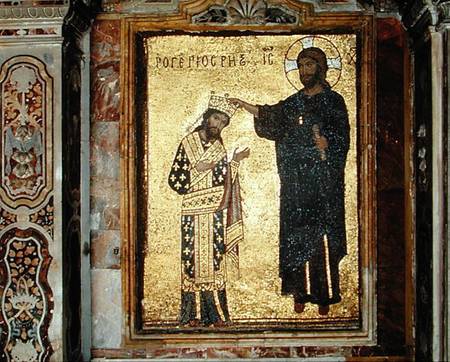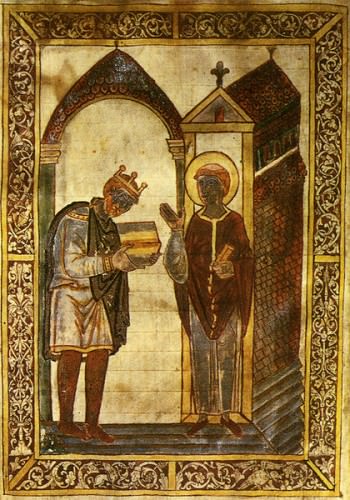 |
| The port at Benghazi, where it all began |
Hundreds of years BCE (sources vary regarding the date of its founding), a city called Euesperides was founded by the Greeks on the coast of the Mediterranean. It was likely named in honor of the Hesperides, the daughters of Hesperus who tended a peaceful garden in the extreme West. Coins from Euesperides dating as far back as 480 BCE have been found, with Delphi on one side and the silphium plant on the other. Silphium, valued as a spice and a medicine, was a major export; today, however, we have no idea what plant species it was.
Herodotus mentions it in his History when the satrap of Egypt sends a force to conquer the Cyreneans there. The Greek historian Thucydides mentions it being besieged by "Libyans"; the town was saved that time by a fleet led by a Spartan general who arrived by accident due to unpredictable winds. One of their kings, Arcesilaus IV, competed in the Pythian Games* in 414 BCE.
Euesperides moved in the mid 3rd century BCE—presumably because of the silting up of the lagoon its ships used—and was renamed Berenice (for the daughter of King Magas of Cyrene. Ancient Berenice was located under what is now the center of the modern city.) The city later came under Roman rule and existed for several centuries, but dwindled to a small settlement. St. Anthony the Great may have traveled through there on his way to be a hermit in the desert.
In the 13th century, the location became a stopping place for Genoese merchants who wished to trade with the interior. (Remember, the Genoese were spreading out all over the mediterranean, even as far as Monaco.) By the 1500s, it was appearing on maps as Marsa ibn Ghazi. I have not discovered who the "sons of Ghazi" were for whom it is now named, but Ghazi is a Muslim title of respect, so it may have a non-specific origin.
Benghazi has been through many changes of name, and its long history is fraught with conflict and attempts—some successful—for regime change.
*The Olympian Games were not the only "world-wide" athletic competitions in the Classical World.










